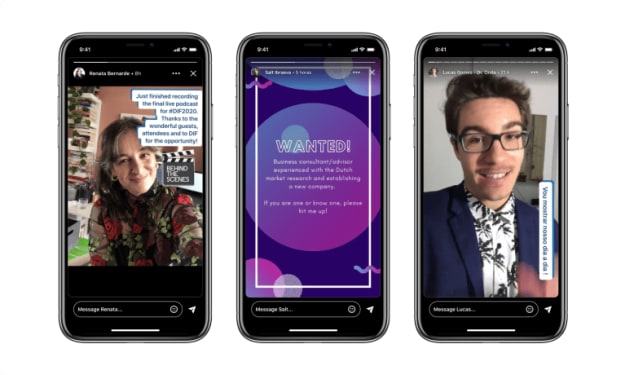Answering the Salary Expectation Question
A Collection of LinkedIn Experts Sound Off

As a job seeker, I am constantly refining and updating my strategy, but when it comes to the salary expectations question, I have been fumbling lately to find the right answer when the company I am talking to has not provided a range ahead of time.
My go to answer recently has been to mention what I was paid at my last job as a [JOB TITLE] at [COMPANY X], but that that rate also is flexible based on benefits, perks and the total offer package.
I feel like I am playing with fire doing it this way and should be giving a more vague answer about the general going rate for [POSITION X] in [GEOGRAPHIC AREA].
I posed this question to my LinkedIn network recently and tossed it out to the recruiters, hiring managers and other folks involved in the hiring process for new positions as well as fellow job seekers and asked...what is an acceptable answer when you ask a potential hire what their salary expectations are when you have not given a salary range on your job description?
The post blew up and garnered many good responses and helpful information. It turns out I have been doing it all WRONG. Thankfully, there was plenty of good tips from both sides of the hiring process and so I wanted to share some of the best advice I received to help you in your job hunt.
Here's what those folks had to say...

1. Amy Miller (Sr. Recruiter - I build the teams that build the satellites. Recruiting Truth Teller and Buster of Myths)
DO NOT MENTION PREVIOUS/CURRENT SALARY :)
Mostly because it's illegal to ask in many states and it's none of our (recruiting's) business :)
Focus on EXPECTATIONS. My line is "I couldn't seriously consider a move for less than $X - depending on the role, location. (insert variables here) I can be flexible but would love to know more about (company)'s compensation philosophy"
Check out my Salary FAQs and let me know what you think!
https://www.recruitinginyogapants.com/salary-faqs
2. Chaitali (Sim) Thakkar, CSM (Corporate Recruiter (RPO) at FIS)
Tai Freligh you do not need to discuss your previous salary. Always stick to what you are expecting for that particular role you are being interviewed for. Also mention your salary expectations during the initial conversation with the recruiter so to avoid wasting time of everyone involved in case if it doesn't make sense to either parties. Always give a good range that you feel you deserve for that job. If that does not work for the recruiter or the HM then you both can move on from it.
3. Patty A. (Agile Coach | Scrum Master Career Coach | I help SMs go from Fear to On 🔥)
Yes - do not indicate your current/previous salary. When you were hired for your previous role, you may have had a different level of experience. Therefore, your next role warrants a different salary range.
This question is uncomfortable at times, but if you feel like you need to answer, research the market rate and then give a range. I really like what Chaitali (Sim) Thakkar, CSM has said in her comments here.
4. Courtney K. (SaaS Product Management Professional)
When asked what my current salary is or what I’m seeing, I always say “I’m looking to stay in the range of X to X if I were to make a change.” And then usually give a range comparable to what the role makes on average.
5. Brent Grazman (Operational Excellence & Quality Leader focused on People Centric Quality (Zero Defects) and Quantity Management (Lean & Flow) through Respect for People and Team oriented focus.)
COMMENSURATE WITH PEERS is a safe response.
My previous salaries with other companies and other titles in other industries don't matter.
My expectations don't matter.
Most companies have ranges, grids, levels and other structure and I point out that I know how the game is played... if I say a number and you pay me lower than peers & I find out, then I'll be mad, but if you pay me higher than peers and they find out, then they'll be mad, so I'm sure you all know what you want to pay.
(Since I have the right to negotiate or just say no later, I'm not at risk for this reply).
I also have no problem with someone willing to work for less (to get the job) and neither should you! If someone needs the work (or the insurance or whatever), that is their business and there is no need for them to try to maximize comp. or to be badmouthed because of their decisions.
6. Jessica Lara, CPRW (✨ PEOPLE-First Human Resources & Military Friendly Recruiting | 🧠 Constant Learner, Project Manager, and Positivity Dealer 🎉 | Connect with Curiosity & Share your Value!)
I wish salary transparency was standard, and this depends entirely on the role, but my advice is to simply be polite, direct, and HONEST about what you're seeking. Recruiters often work from a range too, and may not have specifics before narrowing the candidate pool.
Speaking to other comments on this thread:
🔎 If this is a totally different position, do your homework! No need to be vague about it - that doesn't help anyone. Just do a quick search and respond quickly so we can continue the conversation.
✏ If your current/last salary is comparable, use it as a starting (lower/mid-range) reference point. (Whether your numbers are coming from research or current/prior jobs, it doesn't actually matter to me.)
⚖ If your range is flexible based on benefits or other compensation, SAY SO! I love hearing that bc it means the candidate is likely interested in other aspects of our compensation & interested in speaking further.
TL;DR: Please DO your homework, DON'T be vague, and DO discuss a general acceptable range upfront. Busy recruiters don't want/have time to string someone along - we know not everyone will be the right fit, and that's okay. We don't want to waste your time either.
Hope that helps!
7. Michael Austin (Senior Logistics/ Supply Chain Manager)
Great question. I feel transparency up front would save some awkwardness. I know based on my current income, I do not want less and of course if I am given an option to set my own salary it would be considerably higher then my current salary. My fear with that question would be stating a lower amount than a company was willing to pay and find out later I could have received more. (NOTE: This is a fear of mine as well- giving a salary range that is much lower than what the position is budgeted for. My hope is that the process is open and honest enough that I would not get lowballed.)
8. Joan Kennedy, MBA (Senior Talent Acquisition Partner | Recruiting Specialist)
I would be general with a range, also mention you are flexible and then ask them what range they are working with for the role. Eventually I hope there will be more universal pay transparency, like some states already have. This can be an honest discussion and not a game.
9. Diana Alt (Career Strategy Coach | People-Centric Leadership Geek | LinkedIn, Interview, Resume, & Job Search Coach | Networking Expert)
I've been faced with this many times, as have my clients. There are a zillion ways to handle it, but my preferred way is to know my desired range based on MARKET CONDITIONS for my skills/experience/fit with the role well in advance. If I'm asked about the range very early in the process, I tend to ask the recruiter before I say anything to learn whether we are even close. If their range and my range have a lot of overlap, I say "I'd like to know more about the role before we discuss more, but there is enough alignment to continue discussions." If they won't tell me, I end the candidacy immediately. If they tell me and the ranges are quite a lot off, I say "Based on my experience and results, I was thinking more like X-Y range. Is there room for this to go up?" If they say no, then I end the candidacy.
10. Erin Riska, PHR, SHRM-CP (Ex-McDonalds 🍔 🍟 Ex-Ponderosa Steakhouse 🥗 🥩 Ex-Meijer Thrifty Acres 🛒 🛍️ ◦ No Risk(a), No Reward)
Personally, I'd do a bit of a benchmark to see what the market for the role is locally, and base my response on this, ALWAYS with the caveat that I take a Total Rewards perspective, considering the cost of benefits and such. Luckily, this is largely a non-issue here in Colorado these days, as employers are obligated to be transparent about compensation and act in good faith in providing the anticipated range.
11. Andy Bowden (Product Leader | PMC-VII | CSPO | Job Hunter Helper (H.O.P.E.))
Tai Freligh Do not say such a thing about what you're making currently. Salary expectations are exactly what what it means: what you expect to be paid given the role and level of responsibility. Job seekers need to do their research when it comes to this question. Also, I recommend always state a range plus/minus 25% at the high end of your range
12. Joan Szalajeski (Accounts Payable Specialist at Vedanta Biosciences, Inc.)
Because I've been working so many temp or contract positions over the last 9 years, I will often name a target of $5.00 to $10.00 per hour above my current or most recent position. Convert that to an annual salary for direct hire positions.p0 I will plus up the request if I have to travel outside of my targeted geographic area to compensate for the extra costs of commuting.
If there's any hesitation on the interviewer's part, then I might mention that there's some wiggle room below that, but not much. I won't tell them my bottom amount.
I never state what I earn or recently earned.
In the State I choose to work in, it's illegal to ask what I made at my last job, and I called out a potential employer when they asked me that question during an interview a few years ago.
Never be scared to ask for a pay range which your skills and knowledge warrant.
Market research at salarywizzard.com backs up your request. Look at all towns within your search area, the compensation rates will vary from town to town, and some will change often, so keep your research current. Record all 3 levels.
Right now it's a job seekers market. Employers are having trouble attracting and landing qualified candidates.

There is a lot of good advice here, so it's probably worth it to save this post for rereading or share it within your own network. The conversation continues under that post on my feed and there's nothing like a fresh comment to get the discussion rolling again!
I offer a variety of services, including digital marketing, social media and copy editing through my company Tai Freligh Consulting, as well as tips, exclusive entertainment interviews and the occasional dog and cat picture.
You can give me a follow on my Tai Freligh Consulting company page.
Drop a connection request through my LinkedIn profile and let's connect and expand our networks. Be sure to mention you came from my article and let me know what was the most helpful tip you learned!
I can be contacted via EMAIL or you can message me on LinkedIn or comment on one of my posts if you're interested in chatting further to see if I can be of service to you!
About the Creator
Tai Freligh
I write about entertainment and pop culture. My favorite movies are superhero or comic book movies...same with TV shows. I'm based in Huntington Beach, CA, but have been known to jaunt into L.A. Exclusive interviews are my jam.






Comments
There are no comments for this story
Be the first to respond and start the conversation.